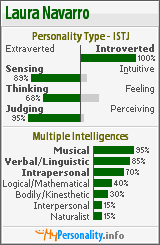While reading The Poisonwood Bible, I kept thinking of this post at Pyromaniacs, this is the part that stuck with me.
“You don’t struggle with the problem of whether to save the whole world or save your family. You choose your family – because that’s what you’re supposed to do.”
The alleged moral dilemma in Superman is no dilemma at all – it’s a ruse. As much as we might enjoy watching Clark do all that stuff, … the truth is that we know what the right thing to do is. And we don’t need a big red “S” to do it: we just need to love.
And this is where the father in The Poisonwood Bible failed. Here is my review of The Poisonwood Bible by Barbara Kingsolver.
One of the worst things we can do is to make a god in the image of our fears and doubts and then force him on everyone else. But it is very difficult to accept a God of grace and mercy who says all your works of righteousness cannot buy you what He is willing to give you. So, we create our box, shove our god in there, and then judge everyone else who doesn’t live up to our standards. As a nation, the United States has often done the same thing. We have cornered the market on democracy and we think everyone should have it, and it should look exactly like ours.
The Poisonwood Bible is the story of a man who survived WWII, when everyone else in his company didn’t. He, and his government, decided his actions had been cowardly and he swore to never show cowardice again. He created his own image of God who was constantly watching him for the slightest sign of weakness. And he defined his own brand of bravery and weakness. The strength it takes to love and provide for and protect a family, a wife and 4 daughters, was not in his vocabulary. To him, bravery had to be something bigger and bolder. He dragged them all to the Congo in 1959 to spend a year enlightening the poor heathens living such primitive lives in Africa.
Being brave meant he could not reveal that he did not know everything. He never asked questions or listened to advice. He would force the facts, and the environment, and the words of the foreign languages to meet his expectations. He demanded perfection but expected failure from the weaker vessels in his life, never appreciating their strength or accomplishments, only seeing where they did not live up to his demands.
His story is paralleled by that of the United States watching the Congolese push for independence from a Belgium that had oppressed and robbed them for so long. The US and much of the rest of the world insisted they do it the “right” way and elect. But then, the Congolese elected a man the US didn’t like or trust, because he wouldn’t obey them in all things. The US proceeded to step in and redo things to make them “right”.
The story is actually told from the perspective of the wife and 4 daughters, passing from one voice to another with each chapter. We see their thoughts and actions based on their love and faith in the father, or, later, their lack of love and faith in him. We see 5 lives irrevocably changed by his behavior, by his lack of grace and mercy. They each respond to the inevitable change in their own way, while watching their father refuse to admit change occurs. We also see a glimpse of a continent with a physical and spiritual environment that cannot support the exact same methods used in the US, no matter how hard we try to force our ways on it.
I struggled some with this book, but it was worth the reading. I struggled for the cruel, pitiless, and misguided religion of the father, and the resistance to become familiar with another culture before passing judgment on it (and finding it lacking).



